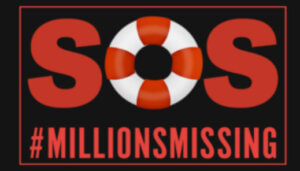The National Institute of Health’s RFA for ME/CFS Collaborative Research Centers breaks new ground. For the first time, the funding agency is strongly encouraging researchers “to establish partnerships with patients groups and solicit their input” as part of their research plan.
#MEAction assembled a team of volunteers to assist researchers in thinking about this, and today we release the first version of “Engaging People with ME as Partners in the Collaborative Research Centers.” This document shares best practices identified by the volunteers, along with resources for more information.
“Engaging patients and caregivers in research is not a new concept,” says Jennie Spotila. “Patient-centered approaches to research have been developed and applied in many areas, but this is the first time NIH has encouraged it in ME research.” Spotila led the volunteers, drawing on her training as an Ambassador for the Patient Centered Outcomes Research Institute. “We are fortunate that our team could rely on what PCORI and others have already learned,” she added.
The volunteers drew on their own diverse backgrounds as well. The team included men and women from around the US who have been sick with ME between two and twenty-two years. Professional backgrounds included corporate financial services, physician assistant, and medical educator. Several members of the team have participated in ME research as subjects, as well.
“We read multiple articles about what others have learned as research patient partners,” said volunteer Bill Capell. “We tried to think through not only what people with ME need, but what researchers can gain from partnering with us.” Volunteer E.J. Cooper-Stark adds, “There is a lot we can learn from sitting down as equals. We don’t need scientific backgrounds to translate our experiences.”
The best practices document has been sent to 29 ME researchers today. It is publicly available and can be shared widely. “We hope this is only the first version,” says volunteer Claire Refaey. “We can continue to refine it as we learn more.”
If you have feedback or questions, please contact patientengagement@meaction.net.

SOS: Save our Science
People disabled by ME and Long Covid across the UK send out an SOS. It’s time to send out our SOS signal, if we want to have funded research. May 12th, is Myalgic Encephalomyelitis Awareness Day. On this day, the #MillionsMissing of people with myalgic encephalomyelitis (ME) gather to demand an increase in research and



